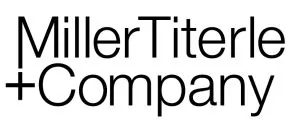Proof of COVID-19 Vaccination Required
As of September 13, 2021, proof of a COVID-19 vaccination is required in British Columbia to access various social, recreational, and public services. Many employers are also now considering whether to implement vaccination policies for their workforce, a topic which has become the subject of controversy. However, it has been demonstrated that carefully drafted mandatory vaccination policies are not in breach of applicable laws, human rights legislation, or the Canadian Charter of Rights and Freedoms ("Charter").
What does the Charter say?
There is a significant amount of misinformation circulating concerning the relationship between the Charter and COVID-19. The Charter provides Canadians with rights and freedoms, including freedom of religion and freedom of expression, as well as the right to life, liberty, and security of person, though, it is important to note that the Charter does not apply to the actions of private businesses. All laws in Canada must comply with the Charter.
It is a common misconception that our Charter rights are absolute and cannot be limited; this is incorrect. Section 1 of the Charter states that the law can limit Charter rights as long as those limits are "reasonable" in a free and democratic society. The key question then becomes whether laws and mandates intended to curb the spread of COVID-19, such as mask mandates and vaccination requirements, are a reasonable infringement on Charter rights. Learn more about the Canadian Charter of Rights and Freedoms here.
How does the BC Human Rights Code apply?
The BC Human Rights Code ("Code") promotes human rights and protects against discrimination on "protected grounds" such as race, religion, sex, gender identity/expression, and physical or mental disability.
In the employment context, the Code prevents employers from discriminating against an employee based on a protected ground. Employers may also have a duty to accommodate employees affected by a disability or other protected ground, up to the point of undue hardship. Therefore, if an employer wants to institute a mandatory vaccination policy, they will have to make exceptions for employees who cannot comply with the requirement due to a protected ground under the Code, including disability or religious belief. The Code does not prevent an employer from making such a policy.
The Code also applies to access to services. The BC Human Rights Tribunal ("BCHRT") recently addressed discrimination concerns related to the BC Government's new vaccination requirements for services in its screening decision, Complainant v. Dr. Bonnie Henry, 2021 BCHRT 119. The complainant alleged they had asthma, a physical disability under the Code, and that they did not want the "experimental COVID vaccine"
The BCHRT reviewed the complaint, and found the complainant had failed to establish a connection between the disability and an adverse impact linked to a service. The Tribunal stated:
"...it is not enough to prove discrimination to have a protected characteristic and have experienced an adverse impact: there must be a connection between the two. The person making the complaint must establish that connection. Here, even if the Complainant had outlined an adverse impact, such as being denied a service because he was not fully vaccinated against COVID-19, he would then have to allege facts that could establish a connection between having asthma and not being fully vaccinated, such as his disability preventing him from being able to get vaccinated. An ideological opposition to or distrust of the vaccine would not be enough."
This decision supports the position that mandatory vaccinations requirements do not violate the Code, unless an individual can demonstrate that a protected ground prevents them from getting the vaccine and they have been discriminated against because of their unvaccinated status.
Mandatory Vaccination Policies
The growing consensus is that mandatory vaccination policies for workplaces are reasonable and enforceable. However, policies must be drafted carefully, taking into account the nature of your workplace and industry, as well as privacy and human rights considerations. If you would like assistance preparing a mandatory vaccination policy for your workplace, please contact Ryley Mennie, Lou Poskitt, or Connor Levy from our Workplace Law Group.
Employers may have additional questions about how to implement a mandatory vaccination policy in the workplace. Our previous blog post, found here, addresses some basic questions such as whether employers can ask for proof of vaccinations and if job applicants have been vaccinated. We encourage you to check it out!
The content of this article is intended to provide a general guide to the subject matter. Specialist advice should be sought about your specific circumstances.




